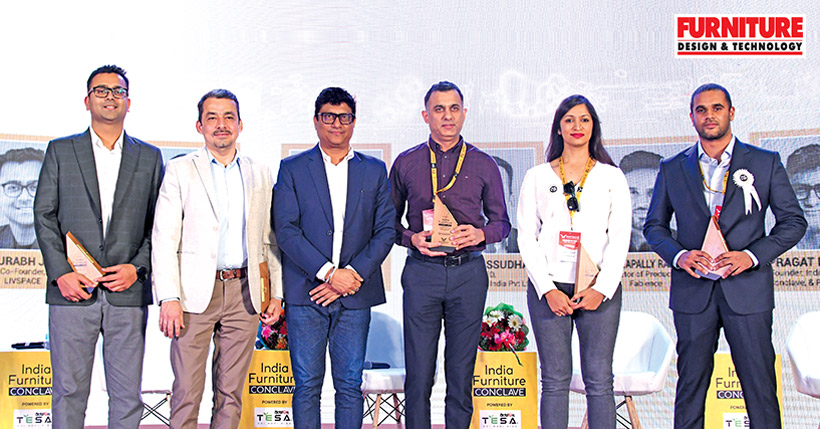
India’s furniture industry is undergoing a seismic shift. Once a fragmented landscape dominated by unorganised players and artisanal carpentry, it is now witnessing rapid transformation powered by design-centric thinking, digital integration, and the rise of tier 2 and 3 cities as serious consumption centres. The India Furniture Conclave 2025 staged a compelling dialogue among leaders who are shaping this new narrative. Moderated by Pragat Dwivedi, Founder of India Furniture Conclave and Ply Reporter, the panel brought together some of the most dynamic voices from companies leading this evolution.
Sourabh Jain represented Livspace, a company that offers end-to-end home interior design and renovation solutions by seamlessly connecting homeowners with designers, contractors, and manufacturers through a robust digital platform. Gita Ramanan brought insights from both Design Cafe and Homelane, companies that have redefined accessibility and convenience in interior design by offering complete, turnkey solutions tailored to modern Indian homes. Arvind Kashyap shared the journey of Oaktree, a brand that focuses on crafting high-end, premium kitchens and wardrobes, blending luxury with function. Govind Asudhani spoke on behalf of IMA Shelling, a global technology provider that develops, designs, and manufactures advanced machines and systems for wood, plastic, and metal processing— catering to some of the world’s leading furniture manufacturers. Adding another perspective was Takkalapally Karan Raj Gopal from Fabience, a company known for its commitment to quality in modular kitchens, wardrobes, and bespoke furniture solutions.
Each of these companies represents a unique node in the evolving furniture value chain, from digital design services and premium manufacturing to cutting edge machinery and engineering systems. Their stories, reflections, and forecasts paint a comprehensive picture of an industry on the brink of exponential growth, poised to serve a billion aspirations—whether in a studio apartment in Pune, a bungalow in Indore, or a high-rise in Gurugram. With consumers seeking not just furniture but holistic solutions, and with every city, tier, and price point presenting a new opportunity, the stage is set for a furniture renaissance across India.
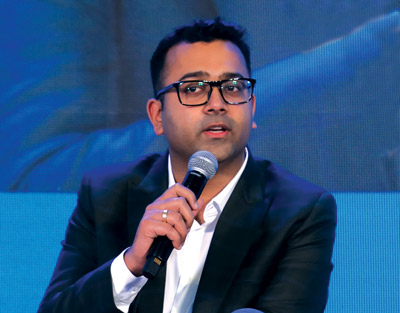
" We never wanted to do 10 or 100 homes - we aimed for thousands. But every customer is different." - Sourabh Jain Co Founder, LIVSPACE
THE PUSH FOR FDT PERSONALISATION AND SCALE
Sourabh Jain, Co-founder of Livspace, was among the first to identify a massive gap in home interiors: the lack of structured, scalable, and design-led solutions. “We never wanted to do 10 or 100 homes—we aimed for thousands. But every customer is different,” he said. Jain’s strategy was simple yet revolutionary: to use technology to deliver personalisation at scale.
He elaborated on the company’s early days, “We didn’t start with a studio. We started with a vision to solve a broken experience in a very large market. Every site is different. Every customer has unique tastes, styles, budgets.” Jain pointed out that in India, around ten lakh homes are either built or renovated every year. “Each of these homes deserves design that reflects the user, but that design needs to be delivered efficiently.”
Livspace focused initially on metro cities but quickly discovered a surge of opportunity in tier 2 locations. “Our experience centres today are more in tier 2 cities than in tier 1,” he shared. “These markets are underserved and have high spending power. While they represent 20 25% of the housing market, they account for nearly 40% of the spending, since homes are often bought outright from savings rather than EMIs.”
REDEFINING ESSENTIALS IN INDIAN HOMES
For Gita Ramanan, Co-founder and CEO of Design Cafe and Chief Design Officer of Homelane, the journey began with architecture and pivoted to design-led entrepreneurship. “Ten years ago, modular kitchens weren’t mainstream. Today, they’re expected,” she observed. According to her, the organized mass furniture industry has shifted from being an optional upgrade to a default choice. Gita noted that while organized players still only occupy a small portion of the total market - estimated at around 10-15% - the pace of growth has been exceptional. “What was once only available to the top luxury consumers is now reaching the masses. The gap is closing fast.” Sharing a personal insight, she added, “I was listening to a podcast on IKEA. Their growth was rooted in industrialization and migration. It’s the same here. Families from smaller cities move to urban areas, often into smaller homes. They can’t bring traditional furniture with them. They need furniture that adapts to new lives.”
The merger between Design Cafe and Homelane, she explained, was driven by a shared desire to serve these evolving needs at scale. “Middle-class India isn’t one middle class. Every region has its own price sensitivity, aesthetic, and lifestyle."
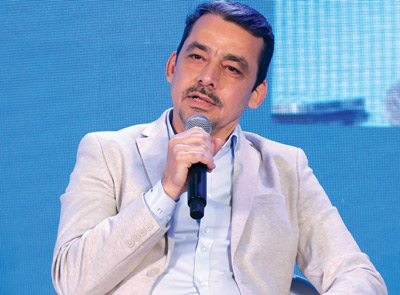
"Furniture was once a product business. Now, it’s an experience business."- Govind Assudani Chief Executive Officer, IMA Schelling India Pvt Ltd

“Today’s consumer wants affordable luxury. The aspiration is the same - ‘I want something better than my neighbour.’ What’s different is the approach. Technology, materials, and smart logistics have made it possible.” He also emphasized India’s readiness to embrace AI and smart manufacturing. “We’re developing software that can analyse raw materials, machine availability, workforce inputs and decide what needs to be produced that day. This streamlines production, reduces waste, and improves cash flow.”
THE POWER OF STAYING GROUNDED
Arvind Kashyap, Managing Director of Oaktree, brought a calm, seasoned voice to the table. With a legacy of manufacturing premium kitchens and wardrobes, his outlook was clear and methodical. “We were known as the Italian kitchen guys. Not anymore,” he said. “Today, Indian manufacturing is competing with Europe - not just in quality, but in experience.”
Reflecting on the evolution of his business, Arvind shared, “Fifteen years ago, we were struggling for quality materials. We had to import glue from Germany. Our carpenters weren’t trained for precision installs. Now, we have access, technology, and a better trained workforce.”
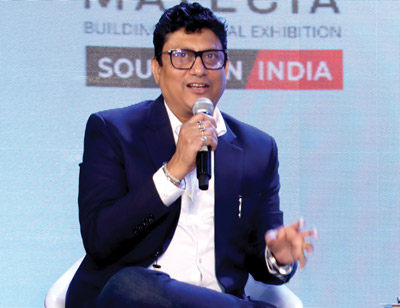
"The next big leap is about readiness - can we serve a billion dreams with precision and care?"- Pragat Dvivedi Founder, Indian Furniture Conclave & Ply Reporter
But does he regret not serving the mass market? “Definitely,” he admitted. “There is huge opportunity there. People deserve better products without having to pay a premium. At Oaktree, we’d love to serve the masses without compromising our standards.” Moderator Pragat Dwivedi observed, “What I admire about Arvindji is his clarity. Today, many try everything - one day institutional, next day turnkey. But he stays rooted in what he knows best.”Arvind also praised aggregators like Livspace and Homelane for professionalising the sector. “They’ve nurtured talent and made design more accessible. That’s a big contribution to the ecosystem.”
BUILDING FROM THE INSIDE OUT
Takkalapally Karan Raj Gopal, Director of Production at Fabience, represented a new-age entrepreneurial model. Returning from Michigan after nine years, he found India’s furniture industry lacking in systems and transparency. “I’d ask my production manager about a project status, and he’d come back with handwritten notes,” he recalled.
Determined to bring change, Raj Gopal implemented software-led workflows that track every stage of production. “We now manage 40-50 projects at once, and I know their status in real time,” he said. Despite lacking a marketing team or showroom, Fabience has delivered 1,700 projects -primarily through factory visits and trust-based selling.
“For many consumers, modular still feels alien. But when they see the factory, the machinery, and materials, their confidence grows,” he explained. “Production first, then marketing. Quality sells itself - at least initially."
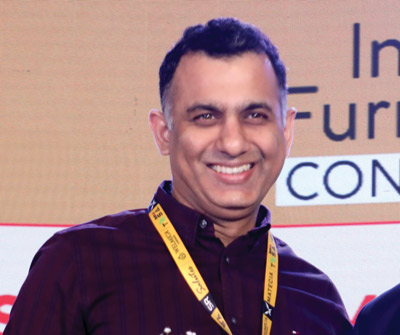
"Today, Indian manufacturing is competing with Europe - not just in quality, but in experience."- Aravind Kashyap Managing Director, OAKTREE
INDIA’S FURNITURE FUTURE: INCLUSIVE, INTELLIGENT, INFINITE
As the panel wrapped up, Moderator Pragat Dvivedi invited closing thoughts on the future. “If I were starting today,” said Gita,, “I’d go more mass. But honestly, I don’t believe in segments anymore. India is many Indias, and each has a story to tell. With infrastructure in place and digital reach, we can now serve all of them.”
She emphasized that in the coming years, 1000-crore companies will emerge in just 2-3 years-fueled by an ecosystem that has finally matured. Arvind outlined Oaktree’s next steps: “We want to be all over India and start exporting. Our average ticket size of Rs. 10 lakh kitchens works. But growth for us means going wider and keeping standards high.”
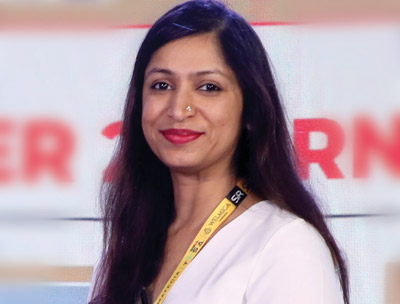
"Middle-class India isn’t one middle class. Every region has its own price sensitivity, aesthetic, and lifestyle." - Gita Ramanan Co founder, DesignCafe & Chief Design Officer, Homelane.
Raj Gopal reiterated the need for process before expansion. “We’ll scale. But we’ll do it right-without losing what makes our product strong.” Govind ended with a tech-driven vision. “Software and AI will define the next wave of growth-both for operations and customer experience. The foundation is already being laid.”
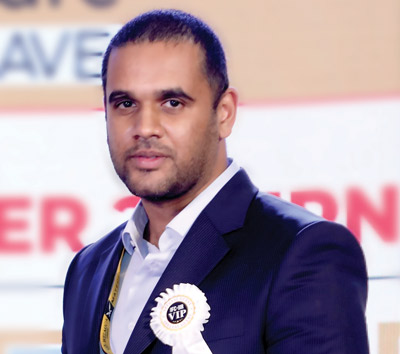
" Production first, then marketing. Quality sells itself – at least initially." - Takkallapally Karan Raj Gopal Director of Production, Fabience
FINAL WORD
From luxury living rooms to compact kitchens, from tech-led personalization to grassroots manufacturing, India’s furniture industry is not just growing- it is reinventing itself. The panel demonstrated that success lies not in choosing between mass and premium, or metro and Tier II - but in delivering meaningful, tailored experiences across all segments.
Dvivedi concluded, “The industry has grown. It has solved key problems. But the next step is about readiness. Are we ready to serve a billion dreams with precision, quality, and care? That’s the challenge- and the opportunity.
Furniture Design India and the magazine FURNITURE DESIGN & TECHNOLOGY (FDT magazine) are from the trusted 22-year-old media house of SURFACES REPORTER and PLY REPORTER.
FDT is a B2B monthly bilingual magazine from India that shares the pulse of the furniture business in India and connects the manufacturers, OEMS, product designers, architects, showrooms, designers and dealers.
Read More© 2026 Furniture Design and Technologies.. All Rights Reserved. Developed by eyeQ Advertising